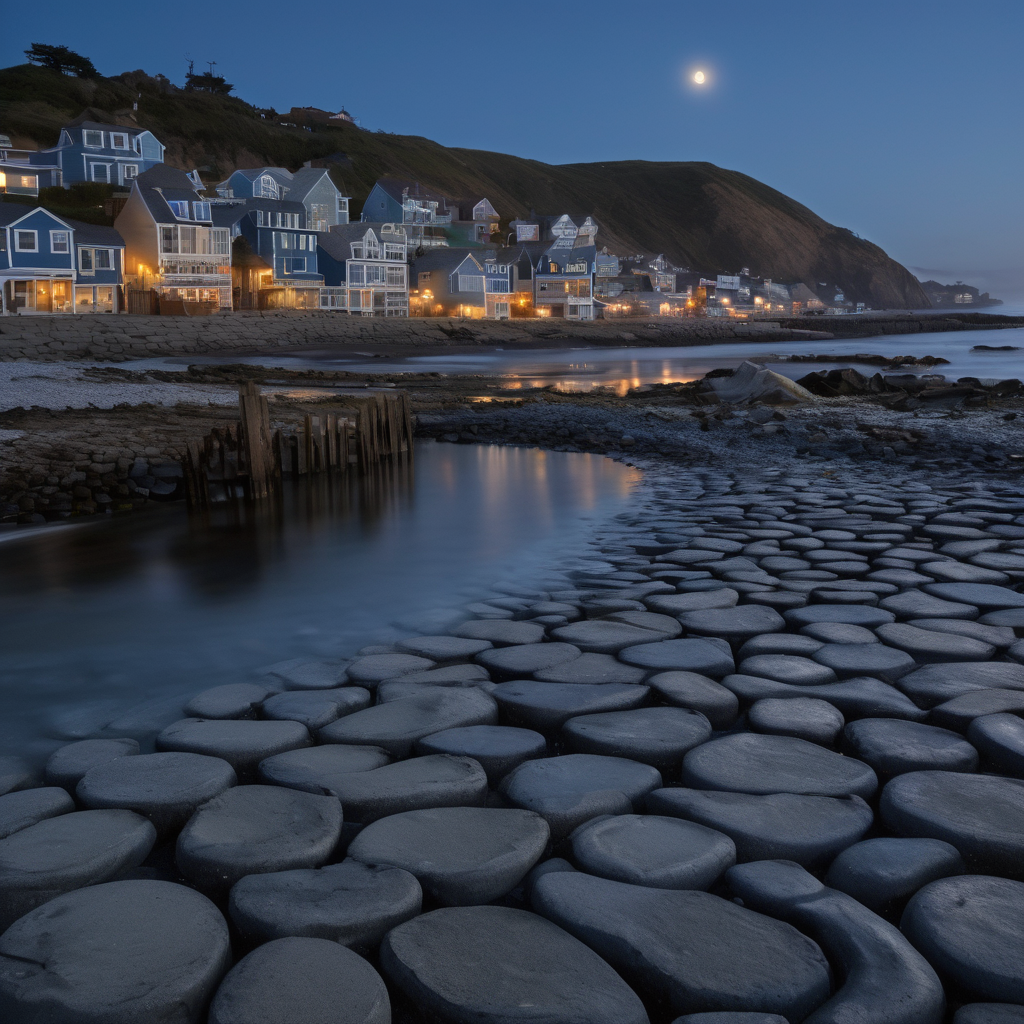The first word in my private lexicon for you is *situationship*. Our town is small, a curl of salted wood and cobblestone nestled in the crook of the bay, and in a place this small, everything must be named: the Widow’s Peak, the Drunken Shoal, the Seawall’s End. But us? We are a question mark lingering in the damp air. You, with your silence. Me, with my lexicon. I bind books in my shop, the scent of leather and glue my constant companion, and watch you through the rippled glass as you mend the nets down by the docks, your hands speaking a language I’ve been trying to learn for a year.
The old fishwives say your silence began after the Unravelling, when the sky tore open and rained brine for forty days. They say you wove the storm back together with a net of words, casting them one by one into the wind until the sky was mended and your voice was gone. A necessary sacrifice. A *canon event*, the young folk call it now, something fated and unchangeable that made you the sorrowful hero of our story. You radiate a kind of bruised *main character energy*, even when you’re just sorting mussels into a bucket. You saved us all, and in doing so, became an island.
I think about the *cost of living*. For me, it’s the rising price of wax for my threads, the scarcity of good vellum. For you, it was everything. You paid with your laughter, your arguments, your quiet morning greetings. You paid with your name for things. And now you walk through a world you can no longer label, while I try to label everything for you. Sometimes, I feel hopelessly *delulu*, believing I can build a bridge of definitions to reach you across the chasm of your quiet. I imagine you speaking, your voice a low rumble like the ships’ horns in the fog, and the hope is so sharp it feels like a delusion.
Yet, even in your stillness, you have it. That effortless gravity. The new girl from the mainland, the one who paints watercolors of the churning sea, she follows you with her eyes. Everyone does. The children stop their games when you pass, not in fear, but in awe. It’s a wordless charisma, a silent *rizz* that pulls the world toward you. You don’t need to speak to be heard. Your presence is a proclamation.
I gather your quirks like precious sea glass. This is your *beige flag*: every morning, you walk the low-tide line and collect stones, but only the perfectly flat, grey ones. You arrange them in spiraling patterns on the seawall, patterns that you dismantle before the tide returns. It’s not strange enough to be a warning, but it’s a ritual so ingrained in you that to see it is to know a piece of your soul. I don’t know what the spirals mean. Perhaps they are the words you can no longer say, written in stone and erased by the sea. A glossary for the ocean.
Tonight, my meal is a hunk of dry bread, a sliver of hard cheese, and three pickled anchovies arranged on a wooden plate. A *girl dinner*, they call this sad, solitary art. A meal of convenience and contemplation. Outside, a sliver of moon hangs in the sky, and I think of you. You are my *Roman Empire*. The thing my mind defaults to in every quiet moment. The historical epic I obsessively try to piece together from fragments and artifacts—a fleeting smile, the knot you tied in a rope, the way you looked at the horizon today as if it had personally offended you.
I close my shop, the little bell over the door giving a lonely jingle. I walk down to the shore, drawn by instinct. The air is different tonight. A *vibe shift*. The usual mournful sigh of the waves has been replaced by a calmer, more inquisitive whisper.
And there you are. Not arranging your stones. You’re standing at the water’s edge, your back to the town. I stop, content to just watch, to add this image to my glossary. *Lian, Watching The Water.* But then you turn, slowly, as if you knew I was there all along. You look at me, and your eyes—usually distant, lost in the epic of your own mind—are clear and focused. On me.
You raise a hand, not to wave, but to beckon. I walk toward you over the damp, packed sand. My heart is a frantic seabird in my chest. You crouch down and pick up a sharp-edged clam shell. Then, in the dark, wet sand where the waves have smoothed it into a perfect slate, you begin to draw.
It is not one of your spirals. It is not an image of a fish or a boat. It is a shape. A letter. Then another, and another, your hand moving with a slow, deliberate grace.
The word is not one you spent in the storm. It is not a grand, world-mending concept. It is small, and it is new.
It is my name.

Leave a Reply